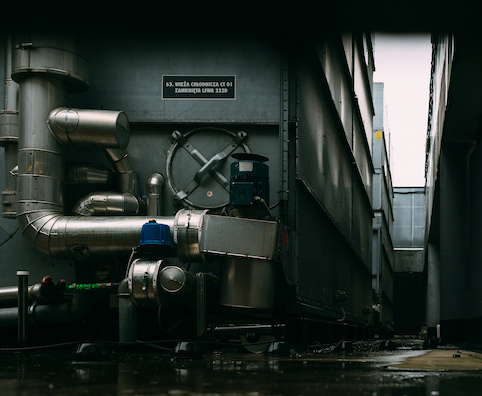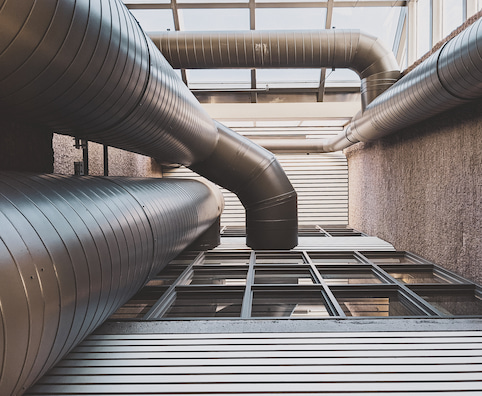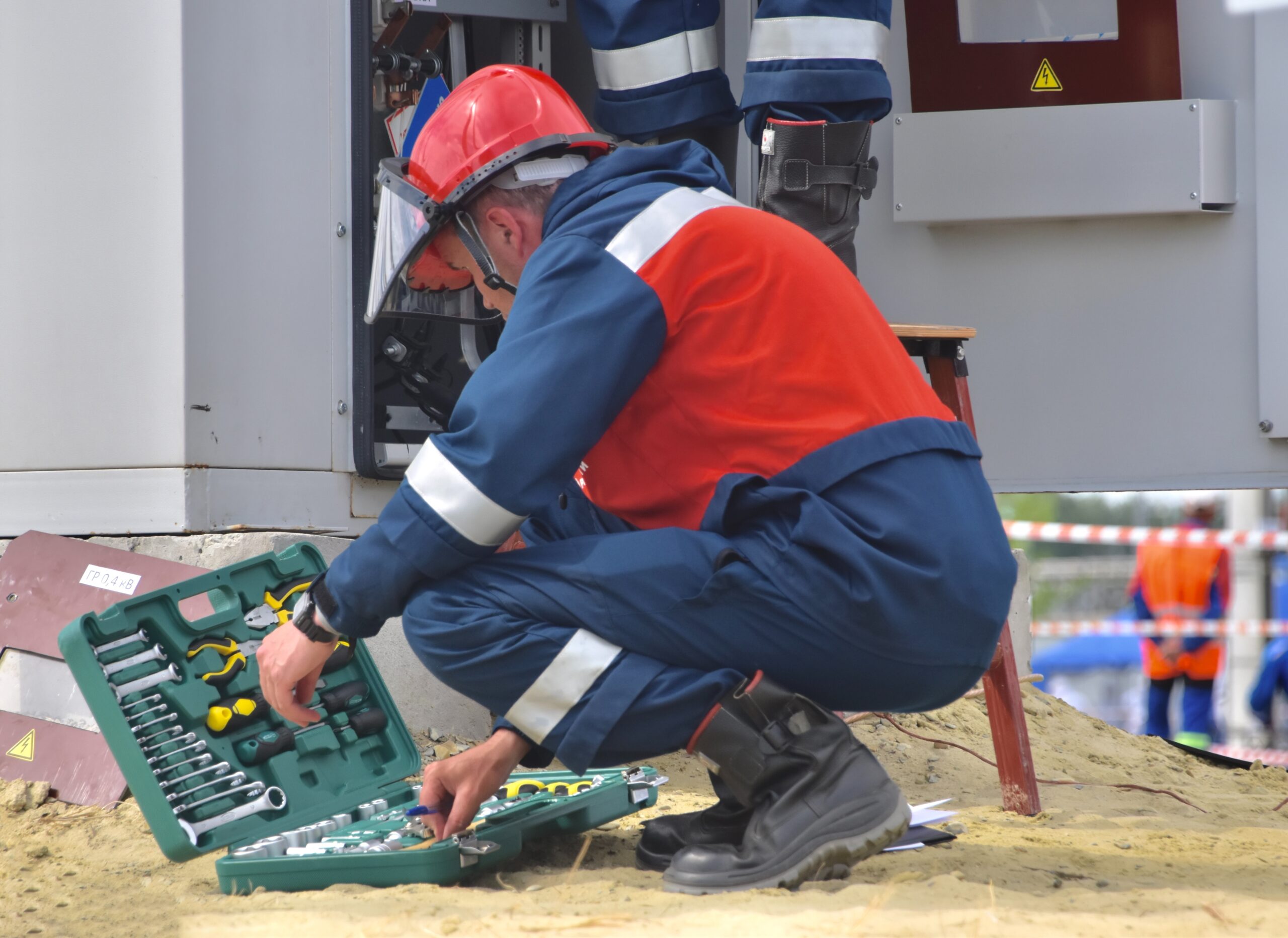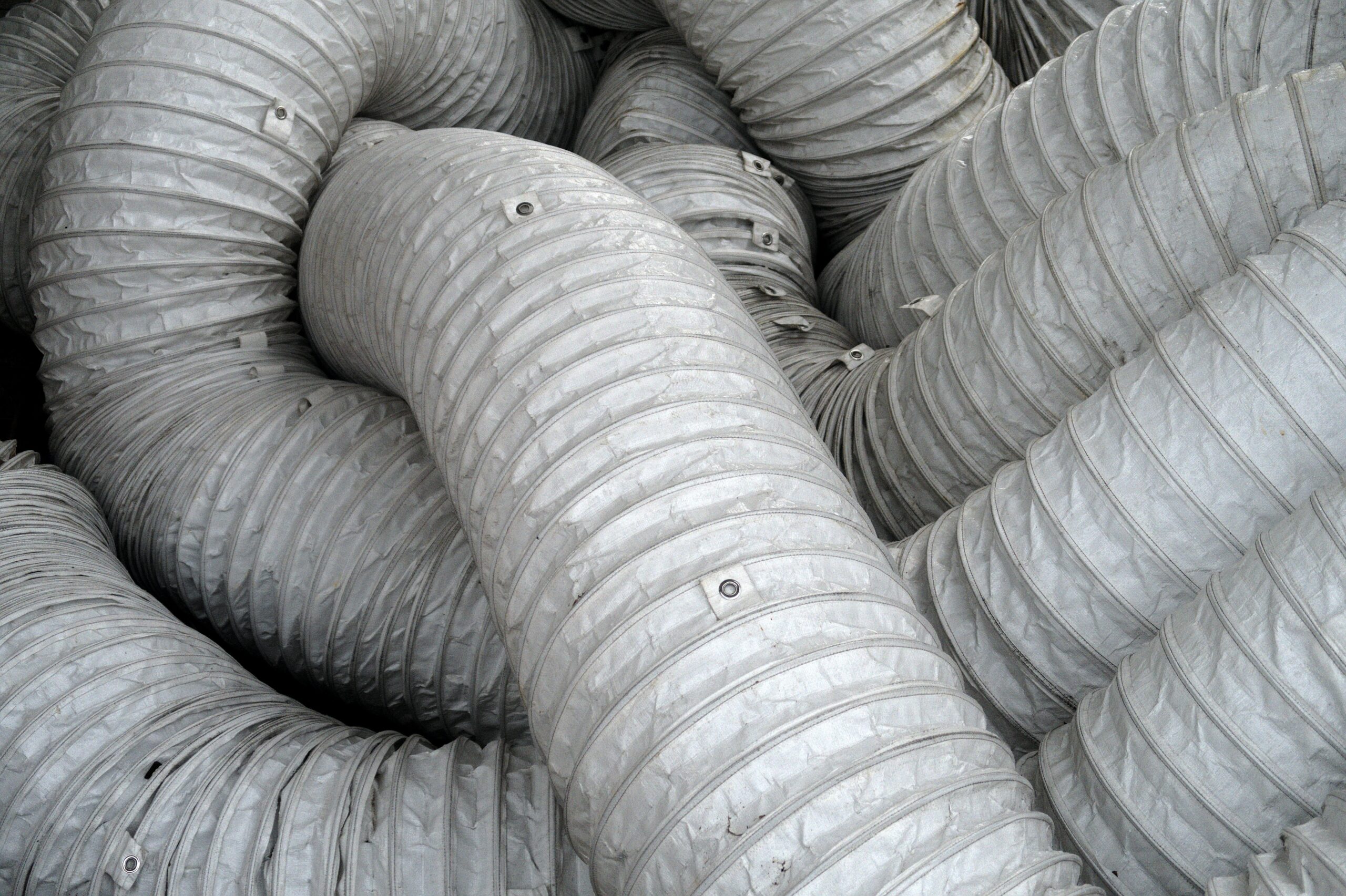Category: All
How Commercial HVAC Systems Work
What is Reactive Maintenance?
How to Create a Planned Preventative Maintenance Schedule
What Is Lightning Protection, And How Does It Work?
If you’re the decision-maker for your business or organisation, you’re responsible for protecting property, staff, and customers. Lightning is an unexpected but unavoidable hazard that you can’t predict! While getting hit by a strike is unlikely, the consequences can be devastating. Comprehensive lightning protection targets the exterior of your building and equips your premises to handle extreme weather.
Lightning protection is a simple yet easily forgotten step you must take to ensure your team’s health and safety. So, what is lightning protection, and how does it work?
What Is Lightning Protection?
In short, lightning protection is a system you add to your building to reduce damage lightning strikes cause. Contrary to popular belief, the facilities most at risk from damage with a strike are premises without electricity or plumbing to ground the electric shock. You’ll also be surprised to know buildings with metal roofs are significantly safer since any electricity absorbed will be safely transferred to the ground below.
That being said, no matter what, the primary aim of any lightning protection system is to protect your business’ internal electrics. You can never guarantee your property could handle a shock without installing safety measures. With a practical approach to managing lightning, you can be confident your assets will remain undamaged. Damaged electrical equipment throughout your premises may result in a fire or fatal electrocution, so it’s a big deal.
How Do Lightning Protection Systems Work?
The current from a lightning strike will always seek out the path of least resistance. Any system installed to redirect electricity must become the easiest path for a strike to follow. A typical lightning protection system contains lightning rods, metal conductors and ground electrodes. Each component works together to offer a low resistance path to the ground. The system safely directs high voltage currents away from the building structure itself.
Are There Different Lightning Protection Systems?
Lightning protection systems are available both internally and externally, meeting different aims. External lightning protection systems need to intercept direct lightning strikes, safely discharge the current through a down-conductor, and distribute the electricity into the ground. An internal lightning protection system prevents electrical equipment from dangerously sparking with overloaded electricity. For adequate security against extreme weather conditions, you’ll need to combine an inner and an external lightning protection system. Both the interior and exterior of your property are equally vulnerable.
Do I Need A Lightning Protection System?
If you’ve completed any electrical installations on your premises, a lightning protection system is a sensible safety measure to introduce to your property. Lightning strikes are natural phenomena that occur with no warning. They cause unpredictable damage to buildings and life. You’ll never regret fitting a lightning protection system if a bolt strikes you.
How Often Should I Service My Lightning Protection?
Testing and certification of your lightning protection should take place annually, at the very least. Professional testing will inform and preface the servicing of your system since an assessment will indicate where the equipment is wearing down. Remember your earth electrodes need to withstand extreme weather conditions throughout the year, so some of your systems may have deteriorated after twelve months! Suppose you’re heavily reliant on electrical equipment to run and maintain your business. In that case, you can aim for one test every six months and catch issues before they escalate. Servicing, therefore, will also need to take place once or twice a year.
Who Can Perform Lightning Protection System Repair?
For trustworthy testing, servicing and repairs, you need a qualified professional. At Kiasu Workforce, we install, maintain and test any lightning protection system to meet the current legal standards and specifications. Most crucially, our lightning protection services promise you’ll have the ideal infrastructure in place to protect vulnerable premises and equipment, your people, and your business. Contact us today to discover how we can support your health and safety.
A Guide To Road Markings (Find Out How They Really Work)
According to data collected by the RAC, an estimated 35.9 million people drive in the UK. Our roads are unique, and our specific choice of road markings is like no other. It is mandatory to pass a full driving theory test before attaining your full license. It is also likely that you may not remember what every road marking is or what they mean precisely.
There are over thirty different road markings on our roads, and they all require maintenance, so they remain clear to any driver at all times. If you notice any road markings are faded or unclear, you must contact your local council to arrange for them to be re-painted. Kiasu offers a range of road marking facilities for road and car park markings. We can cover existing road markings or paint an entirely new set of markings or parking bays.
Thermoplastic resin is the material of choice when it comes to road markings. It is quick-drying, durable, and bonds with the road surface. The resin is then mixed with Titanium Dioxide pigment for any white road markings and Chromate alternatives for yellow and other coloured markings. The key benefit of thermoplastic paint over cold plastic or water-based alternatives is its drying speed. Thermoplastic paint can dry in less than ten minutes, ideal for busy roads where traffic needs to flow efficiently.
Paint markings can be applied with dedicated road marking vehicles or manually with a laying pram. Cars are more suitable for busier roads with wider lanes, such as dual carriageways. They work by following a straight line and a computerised control system lays the paint onto the tarmac. Manual road marking is more common in residential areas or 30mph zones. Fewer cars and slower moving traffic mean fewer hazards, and you can afford to take more time to paint the road markings. However, this does require a highly skilled Steersman who has mastered the technique.
An essential factor in making your road markings is their visibility in dark conditions. You must include a form of reflectivity to be seen as clearly as possible by drivers at night. Sodium silicate glass spheres are dropped on the paint and secured when the paint eventually dries to achieve a reflective marking. These spheres create a glistening effect on the surface of the road markings that the light can bounce off. For particularly adverse weather conditions, reflective spikes and alternative textures are added to the lines in the road. These extra measures make road lines more visible, and the raised surface indicates when you are driving on or over the lane markings, as they will produce a loud noise.
Road markings are ultimately put in place to keep traffic flowing safely at all times, so if they become worn or are less visible, then this can create a hazard. Every driver needs to be aware of each road marking and what they mean to drive safely in the UK. If you have any worn-out road markings in your local area, you can call us here at Kiasu. We can make or reapply road markings on public and private roads and car parks in and around London.
PAT Testing Explained; Everything You Need To Know
It is a legal requirement to ensure your electrical appliances are routinely tested. Under the current Health and Safety regulations, you must regularly maintain your equipment to prevent the risk of danger to those using it. The testing frequency differs depending on the type of appliance and how frequently it gets used.
What Exactly Is a PAT Test?
PAT testing stands for ‘Portable Appliance Testing’. It refers to the routine inspection and testing of portable devices to ensure they are safe to use. Regular PAT testing is one of the key ways to avoid electrical accidents. It is a crucial factor in keeping your employees safe.
For an appliance to be deemed ‘safe’, they need to undergo a visual survey followed by a more thorough inspection. Once your appliances have been tested, they will be marked as either a pass or fail. A record will then be made stating the date of the test and its outcome.
Which Appliances Require PAT Testing?
A portable appliance typically weighs around 18kg or less and has a remote power supply. These are often handheld devices such as chainsaws, electric drills, and vacuum cleaners. Even though the term ‘Portable Appliance Testing’ implies it is only for portable devices, it covers an even broader range of electrical appliances.
You can conduct a PAT test on fixed machines, wires and cables, IT equipment, and portable devices. Under the current PAT legislation, testing should be carried out on any equipment that has to be plugged into an electrical outlet or has a plug attached to it.
How Often should My Appliances Be Tested
IT is recommended that you carry out checks frequently enough to limit the risk of it becoming unsafe to work with. If you find some equipment is more prone to faults than others, then these need to be a priority and checked on a more regular basis.
The person surveying your electrical appliances must have a comprehensive understanding of that particular equipment. It is no use having your test carried out by somebody who does not fully understand how your machinery works or the faults it is prone to. You must ensure a highly experienced and qualified individual carries out your testing. Kiasu’s team can provide the best PAT testing in London and the surrounding area.
Whose Responsibility Is It To Arrange Appliance Testing?
When it comes to PAT testing, the responsibility is yours. The law states that anyone who owns electrical appliances for use by other people needs to ensure they are regularly tested and certified safe for use. This includes all employers, landlords, and even those who are self-employed.
PAT testing is not compulsory, but the law states that any employer must maintain their electrical equipment and keep it in complete working order. There is no specification for how this should be done, only that it must. If an employee or a tenant were to use a device and sustain an injury due to an electrical fault, you would be liable if you had not performed regular checks.
Electrical faults are unavoidable, but arranging for thorough and regular testing can improve the safety and reliability of your appliances. Because you must prioritise the health and safety of your employees, it is highly beneficial to use a certified PAT testing service.
Kiasu can identify any signs of appliance damage and test switches and fuses. We will also inspect the condition of live wires and conduct complete visual inspections. We will carry out all checks efficiently and discreetly so you can carry on with work as usual.
Contact our London-based team for more information and arrange your consultati
4 Differences Between Deep Cleaning and Regular Cleaning

Something we can all agree with; keeping on top of cleaning is a struggle. When you get in from a long day at work, the last thing you want to do is scrub the bathroom tiles. According to a recent poll, the average person spends more than five hours a week on domestic cleaning tasks. Having a regular cleaner pop round to do all the time-consuming (but all-important) cleaning jobs can make your life a lot easier.
Also, there are times when regular cleaning isn’t enough! Maybe you’re planning on selling your house, and you want it looking spick and span; this is where deep cleaning comes in. Ensuring no bacteria or grime is left behind takes a lot of time, effort, and speciality cleaning products. Leaving it to the professionals ensures the job gets done correctly, quickly, and to the highest standard.
1. Regular Cleaning Occurs More Often
The main difference between regular and deep cleaning is that regular cleaning takes place on a schedule. Deep cleaning is a one-off service, often used when a property is being sold or a new tenant moves in. Regular cleaning schedules can be set to meet specific needs; they can be daily, weekly, monthly, yearly, whatever the client wishes!
2. Deep Cleaning Removes Dirt and Grime
Deep cleaning covers areas not usually touched by regular cleaning. Behind appliances such as ovens and washing machines is thoroughly cleaned during deep cleans; no dirt is left behind! Stains will be removed from carpets, and limescale removed from taps.
3. Regular Cleaning Keeps Your Home Clean
Regular cleaning is more of a maintenance service than deep cleaning. The cleaning tasks you would usually carry out daily, or weekly, are the focus of regular cleaning. Cleanliness is maintained by regular cleaning, preventing build-up of dust and grime; stopping things from getting worse.
4. Deep Cleaning Is More Thorough & Ensures Ultimate Cleanliness
Because deep cleaning is more thorough and takes longer, it comes with a slightly bigger price tag. But, It’s still affordable and worth every penny. Hiring professionals to complete a deep clean ensures the job is done correctly; untrained people will not reach the same level of cleanliness. This is why people who are selling properties or getting new tenants always use the service!
When Is A Deep Clean Required?
The regular and deep cleaning tasks are similar; the main difference is that attention to detail! Here are some situations where you should consider a deep clean service:
- You are a first time customer. Most cleaning companies have a standard rule that new customers must have a deep clean before regular cleaning.
- You are planning on selling your home. You want to impress; people who view a clean, well-presented home are more likely to buy a property and pay more for it too!
- You are moving out of a rented property. Landlords expect properties to be left in fantastic condition, suitable for another tenant to move in.
- You are hosting an event. If a wedding is taking place at a premise you own, or you’re hosting a party for your mates, you want everything to look good, and be hygienic too!
- You’ve moved into a property left in a bad state. People should always get a deep clean before moving out of a property, but unfortunately, not everybody does.
Regular Clean Vs. Deep Clean; Which Do You Need?
So, suppose it’s your first time booking a professional clean. In that case, you should schedule a deep clean before planning regular cleaning. This service can be daily, weekly, monthly… it’s up to you!
At Kiasu Workforce, we offer a deep cleaning service to commercial and residential properties throughout London. We use products to kill over 99% of harmful pathogens! We make sure your premises are a safe and hygienic environment. Contact us today to find out more; our skilled team are here to help.
Common Air Conditioning Problems & Fixing Them
Air conditioning services are a useful tool to improve employee concentration in the workplace, regulate the temperature of your business premises and keep occupants comfortable. Internal air conditioning keeps your environment healthier and can even help with asthma and allergies.
Conditioning units will filter the air in your premises, and remove dust, bacteria and excess humidity (which can cause the growth of mould). However, these benefits only apply to a working system, so it’s important to service your units regularly!
Here is a useful list of common air conditioning problems, and how to fix them.
Blowing Warm Air
If the air coming from your air conditioning machine isn’t as cold as it should be, then you may have a refrigerant leak. This leak often starts like a pinhole, but over time will develop and expand, and become a larger problem. It’s vitally important that you handle a refrigerant leak as soon as you notice it, as immediate action will save you a lot of hassle later on.
Not to mention, the substance escaping the holes in a refrigerant leak is toxic, and can be detrimental to health. Refrigerant leaks must be handled urgently by a professional offering reactive maintenance call-out services. Handling the chemicals inside your air conditioning machine could have a fatal effect without the correct equipment, and the leaks deplete the ozone layer while being unsafe for the immediate environment.
Another good indicator that a refrigerant leak could be occurring is a foul smell escaping the vents of your machine, so make sure to check the scent regularly. If you have any suspicions at all, contact an air conditioning technician. It’s better to be safe than sorry.
Increased Energy Usage
Sometimes your air conditioning unit may still be providing cold air, but the actual machine feels hot to the touch. This isn’t the ideal case, because it indicates that your conditioning unit is overworking. An overworking machine will require more power and will be more expensive to keep running. If you’ve noticed you’re paying more in utility bills, it can be worth checking your machine out.
The problem here is likely that the filter of your machine is clogged or dirty. The air entering and leaving your machine has less space, and so requires more energy to suck in or push out. It isn’t always the case, but the cold air being offered by your machine may also be less cool than usual when your filter is dirty. The biggest indicator is your unit being more expensive to run.
To clean the filter of your air conditioning unit, you can physically remove it and run it under warm water. As soon as it’s dried, reinstall it to your system and note if you see a change. If you can’t see a noticeable improvement and your machine is still consuming a lot of energy, it could be time to purchase a new filter as a replacement. A handyman is a final resort if that doesn’t work.
Making Strange Noises
If your air conditioning unit is making an unusual buzzing or banging noises that you haven’t noticed before, it’s likely an indicator of an internal problem. This can be due to a malfunctioning compressor, missing or damaged isolation feet, loose parts, or perhaps because your unit is frozen. A leak usually causes a frozen unit, so this cause is less likely if your air conditioning isn’t blowing hot air.
The compressor in your air conditioning unit is supposed to pressurise and cool the refrigerant. A buzzing sound likely means your compressor isn’t working quite properly, or that the voltage flowing to your machine isn’t at the correct level. A banging sound is more likely to be loose parts in your unit, but buzzing can also occur since the other parts of your system will be working harder to keep your machine running in the absence of your loose parts.
Since these strange noises are hard to understand without familiarity, it’s worth calling a professional to see what the problem is. You can’t assess your units perfectly yourself, and taking them apart is a risky game unless you’re qualified.
For professional air conditioning unit repair and further advice, please contact us at Kiasu Workforce.
Landlord’s Guide to Property Maintenance
The list of a landlord’s responsibilities can seem overwhelming. Consistently maintaining the security and health of your rental property is vital to reduce the number of time-consuming repairs you’re faced with while protecting your tenants’ safety.
A well-running property maintains its value and will pass any inspection with flying colours. Investing in your relationship with your tenants is also wise, as you want to be approached as quickly as possible about potential issues with your property to avoid expensive fixes. Our landlord’s guide to property maintenance will help you dodge any costly mistakes.
Conduct inspections
The state of your property can change throughout a tenancy, so it’s advisable to conduct regular inspections as a landlord. Some tenants aren’t able to carry out essential maintenance in a home themselves, so maybe unable to identify dangerous problems with your property. It is your responsibility to keep your property inhabitable and adequately functioning, for the sake of your tenants.
Regular inspections also help you to keep tabs on how your tenant is treating your property. An involved landlord is much harder to lie to, and you’ll be able to keep an up-to-date record of property incidents that weren’t your fault. These can be particularly handy at the end of a tenancy, just in case there is any dispute.
As well as being able to keep an eye on the treatment of your property, you also seem more invested in the experience your property provides – which your tenants will appreciate.
Repair quickly
When problems like mould, damp and blocked drains occur, it can be tempting to try and save money by avoiding those repairs for as long as possible. Unfortunately, problems begin to deteriorate as soon as they start and rarely fix themselves, so you’re best off acting quickly and decisively.
As soon as damp rears its head, structural damage could be occurring within your property. Renovating a house is costly work and leaves your tenants without a home for the time of repair. Trying too hard to save money can cost you more money in the long run, particularly with an older property that’s more susceptible to decay. Call out an experienced professional as soon as damp or mould has been noticed, and avoid property deterioration and complaint from your tenants.
Find reliable tradespeople
When maintenance of your property is constant and, little repairs need to be carried out consistently, finding a reliable set of tradespeople with reasonable prices can make a world of difference. Shop around with reputable local contractors to find the most cost-effective service possible, and stick with those tradespeople. They may reward your loyalty with an even lower discounted price.
As well as the potential to save money, you save time by developing a mutually beneficial relationship with a team of tradespeople. You could find and rely on one ideal handyman for your DIY jobs, consistently call out one team of emergency plumbers for your water needs, and hire a regular group of painters and decorators. You won’t need to shop around for quotes when work needs carrying out, and the team will already be familiar with your property. When your usual contractors aren’t able to fulfil a job you require, they may be able to refer you to another team they trust and guarantee they will operate effectively.
With regular inspections, quick repairs and a team of reliable tradespeople, your property will remain in excellent condition during any rental. Record inspections and repairs as closely as possible to prove your consistent involvement in the property, and there will never be any dispute as to your reputation as a landlord. If your tenants can recognise that you care about your property and their place to live, they’re much more likely to reciprocate in a friendly relationship with you.









